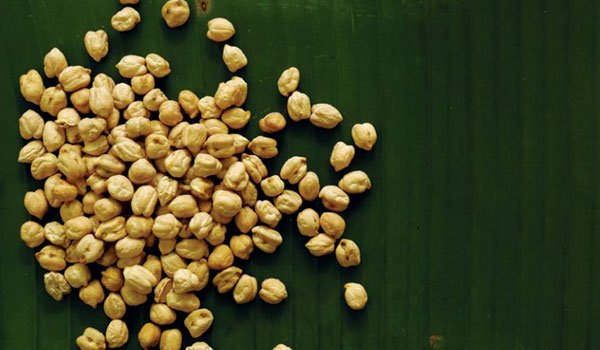Known by many names including garbanzo beans; gram and kadala in Sinhala; and konda kadalai in Tamil, this legume has none of the flamboyance of the eye-catching breakfast cereals available on supermarket shelves. But this little kernel is a mighty atom of nutrition camouflaged in a coarse exterior. Like all legumes, the chickpea is extremely wholesome.It has found its way into the daily diet of many people as it optimises health and is a power house of cholesterol-lowering fibre. Low in fat and high in fibre, it is sought after by both the figure conscious and the health conscious.
The chickpea has demonstrated its worth as a protein-laden legume ideal for consumption in many ways. Sold as raw beans, chickpeas must be boiled in plenty of water until tender. Given their consistency, cooking them is easier when the dried beans are soaked overnight.
A popular breakfast food among Sri Lankans, chickpeas in the morning ensure you are ready for the day, keeping hunger pangs at bay. A touch of imagination and a passion for cooking can produce the most extraordinary chickpea dishes, from cutlets to sandwiches (all that’s required is an accompaniment of shredded chicken, onions and a dollop of mayonnaise). The chickpea is also known by locals as a great ‘bite’, ‘devilled up’ in a slush of seasoning as an accompaniment for drinks.
The most popular way to prepare kadala is to stir-fry it with mustard seed, chilli flakes, onions, curry leaves and coconut, plus slivers of green or red chilli for added spiciness. Known in the local parlance as ‘thel dala’, or ‘cooked in oil’, this method is more desirable than boiled chickpeas eaten simply with scraped coconut, sometimes accompanied with grated jaggery. Chickpeas can also be cooked in a curry or mixed with many other ingredients, such as tofu, chicken liver, fried anchovies and eggplant. In fact a stock of chickpeas at home is an assurance of a nutritious diet; it’s an unfussy ingredient that blends well with any meat or vegetable.
But the drama of the chickpea is at its most thrilling on the street. As a street food, chickpeas are exceptionally delicious, with multiple dishes churned out in record time, from plain boiled gram with coconut pieces to devilled chickpeas – the gourmet choice. Served with a magic potion that looks very much like a gravy, chickpeas this way are simply mouth watering. Garnished with nearly black fried chillies, the oomph you get when eating the highly spiced beans is hard to describe, but it’s certainly effective: the fiery sensation has been known to reduce some people to tears (in a good way!).
An important element of savouring Sri Lankan life is to take part in everyday Island experiences – and trying street food is a great way to get an authentic feel for the place and its vibrant food culture. If you’re wondering where to find a push-cart with a sizzling pot of kadala, look no further than a wayside wine store any night of the week (except religious holidays) and you’re sure to be rewarded with the sought-after nibbles (the promenade at Galle Face in Colombo is another place frequented by kadala sellers). Patrons are plentiful at any savoury chickpea hangout, with lots of people flocking to the counter of the nearby wine store too. But have no fear about the potentially insalubrious nature of such eating and drinking spots – the wholesome and yummy nibbles you’ll find there make it all worth it. And once you’ve tried them, you’ll definitely be coming back for more.
Words Jennifer Paldano Goonewardena
Photographs Vishwathan Tharmakulasingham and Isuru Upeksha
(exploresrilanka.lk)







